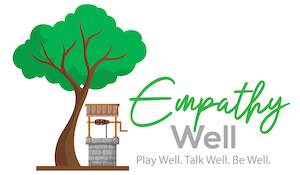There are a lot of things about teen development that may make it difficult to connect with them: they’re usually more interested in spending time with friends than family, they often worry others are judging them, they have a greater desire for independence but struggle with decision-making and impulsivity, their lingo seems to change all of the time, etc. However, there’s one truth about teen development that can also make it so much easier.
Teens CRAVE Connection and Validation!
They want to feel understood and validated, especially when they’re feeling big emotions or going through something tough. Almost every teen who comes to counseling seems to say the same thing: “No one listens to me.” This doesn’t mean that parents aren’t listening to their teens, but it does mean that teens don’t always experience it that way. There are several steps parents can take in order to build a stronger connection with their teens and help them feel heard, which we know can ultimately lead to healthier emotional development, resilience, and overall peace within the house! Here are five easy things to keep in mind when trying to connect with your teenager.
5 Ways to Connect with Your Teen:
1. Validate Feelings First

Teens (or, really, all of us!) are always seeking to feel understood. It can be so frustrating for any of us when someone we care about just doesn’t seem to get exactly how we’re feeling. For teens, this frustration seems to be amplified because of where they are developmentally. This is a stage when they’re exploring their identity and trying to better understand themselves, so that’s where a lot of their focus is!
When your teen is talking with you or even just showing you how they’re feeling with an angsty eye roll, it can be so helpful to first communicate to them that you understand how they’re feeling with a simple statement of empathy. Dr. Dee C. Ray calls this reflective listening skill the Most Powerful Tool in the Parenting Toolbox and you can read more about it here in her blog post. Here are some examples:
- My teen comes home from school excited about a job opportunity, but I’m worried that they won’t be able to keep up with a job with school and other responsibilities. I could first respond with, “You’re really interested in learning more about that position!” or “You’re excited about the idea of working with your friend!”
- I notice my teen hasn’t cleaned up their room after I’ve asked them multiple times to do so. I start to tell them that if they choose not to clean up their room before dinner, then they’re choosing not to go out with friends later. Before I even finish talking, they interrupt me with an eye roll and groan, “You’re always on me about something!” I could first respond with “You’re frustrated that I keep talking about your room” or “You feel like I’m always complaining to you about something you’re not doing.”
In both examples, I’m not necessarily in agreement with their thoughts or plans. In other words, I don’t think that I’m always on them about something, and also, I don’t think it’s the best idea for them to start a job yet. However, by expressing empathy and reflecting their feelings first, I’m showing them that I understand and accept how they’re feeling. As Dr. Ray mentions in her blog, this simple step helps us to connect with them, helps them to feel heard, and helps them stop and reflect on their own feelings. A great thing about reflective listening is that it can be used anytime! It just requires us as parents to slow down and first notice how our child is feeling before moving forward to any next steps.
2. Listen More and Teach Less
Once you’ve got reflective listening down, you can start to listen more and teach less. We often hear teens in counseling say that they want to talk to their parents about a certain topic, but don’t want to get lectured. Again, they just want to connect. As parents, we often hurt when our kids hurt. It’s in our nature. We also have the cognitive capacity (and life experience!) to see consequences to actions that our teens may not yet be able to see. These feelings and thoughts on our end usually lead us to want to swoop in and fix problems or try to explain to teens what we think they should do. This often leads to teens feeling defensive or nagged. Instead, when your teen shares something with you, simply listen. Use reflective listening to validate their feelings and better understand their experience. You’ll be surprised how often your teen will actually end up asking you for your advice after they feel that connection and understanding!

3. Ask Fewer Questions
This one is pretty simple, although it might seem counterintuitive. Teens often feel as if their parents are interrogating them, even if the questions are completely valid and even important. When you’re trying to connect with someone, asking them too many questions can actually shut things down pretty quickly. Your teen may be confused or emotional, so questions just feel overwhelming and judgmental. So, what can you do to connect instead of asking so many questions? You guessed it! Reflective listening! You can also express your own emotions to model how to take responsibility for feelings and get to the true intent behind your questions. Here are some examples:
- I’m curious how my teen’s day at school went, so I try to notice the feelings they’re expressing with their body language and reflect that. I could say, “Looks like you’ve had a rough day.”
- I’m worried that I haven’t seen my teen study when I know they have a test coming up. Instead of asking, “Why haven’t you studied at all?” I can try expressing my concern (nonjudgmentally!) and pointing out what I’ve noticed: “I feel a little worried that I haven’t seen you study much for your history test. Let me know if you want some help studying.”
4. Find Interest in Their Interests
When seeking connection with your teen, be curious about their interests and hobbies. It may be something that’s not all that interesting to you, but it could be so helpful to your connection with your teen to try to engage in that hobby with them. Maybe your teen loves art but you feel unartistic…ask them to teach you a technique they’ve recently learned. It also may be fun to discover what makes the hobby or activity so interesting to them. For example, maybe your teen loves anime, but you’ve struggled to get engaged in it. Ask them their favorite thing about the show, then build on that! Or there’s that video game that you find too intense or boring—try to play it and learn how it’s played. It could mean the world to a teen for them to see their parent trying to engage in something they care about so much.
5. Find a Consistent Time for Parent-Teen Activities

You may feel totally fine connecting with your teen, but struggle to actually find the time to do so in a meaningful way. You’re with them a lot—driving them to activities, helping them study, and taking care of things around the house.
However, sometimes what’s missing is quality one-on-one time where you can just focus on connection! In order to achieve this, it can be helpful to set aside a consistent time each week for this quality time. Some helpful tips for this structuring this time:
- Keep it consistent. Pick a consistent day and time where you won’t be interrupted, such as every Sunday for 1 hour.
- Set yourself up for success—don’t choose a day/time or duration that you think will be interrupted often.
- Let your teen choose the activity. Give them a few options each week of what you can do and let them choose. Examples: bake something together, take a walk outside, cook a new meal, try out a new hobby, create an art project, etc. See what ideas they come up with based on their interests.
But remember, teens thrive on autonomy and may not love this idea—and that’s okay, too!
If you’re feeling overwhelmed by your relationship with your teen, consider seeking support from a professional counselor in your area!




